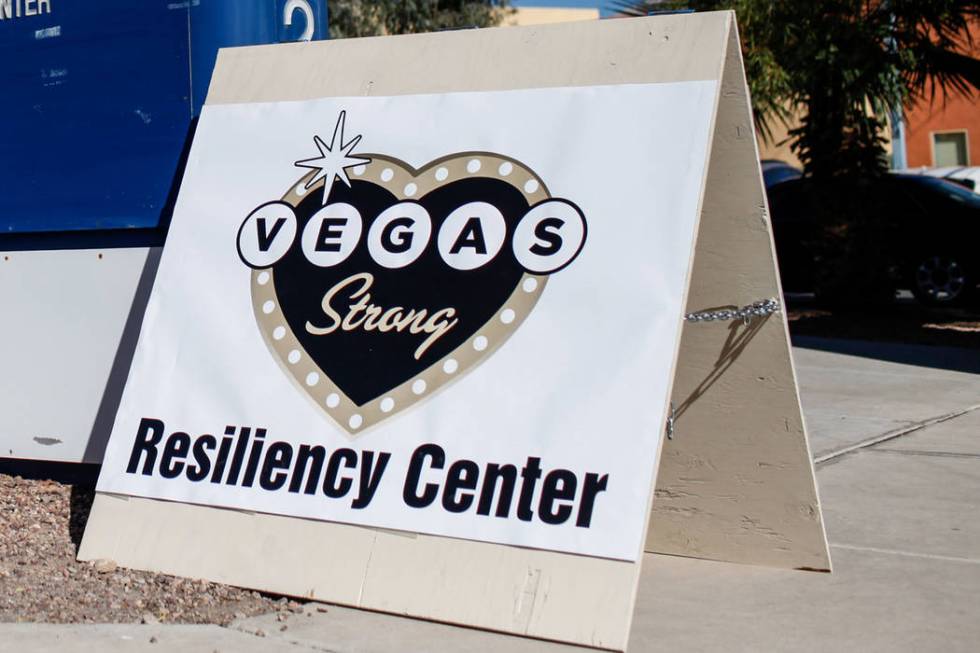Las Vegas resiliency center extends hours after Ohio, Texas killings

In the aftermath of mass shootings in Texas and Ohio that left 31 people dead in one weekend, the Vegas Strong Resiliency Center is receiving more requests for support from survivors and others affected by the Oct. 1, 2017, shooting on the Strip.
In response, the center has partnered with mental health providers to offer additional support this week, including its first online counseling sessions. Those sessions will be conducted via video chat, giving counselors the ability to reach survivors in California and other states.
Anyone affected by the Route 91 shooting is welcome to attend the counseling sessions.
While tragedies like the shootings in El Paso, Texas, and Dayton, Ohio, typically result in an increase in phone calls, emails and social media messages, more first-timers also seek help in the aftermath of mass violence, according to resiliency center Director Tennille Pereira.
“They have just kept pushing through, and then something like this happens, and it makes them realize that they’re not OK, that they need help,” Pereira said.
Most survivors reach out for help through social media, in Facebook groups that have functioned as part-memorial wall and part-community support group, or in emails to the center in which they might feel most comfortable expressing their feelings, Pereira said. Staffers have been checking the center’s Facebook messages during the center’s expanded hours this week to ensure that messages don’t go unread, said Misha Ray, the center’s marketing and outreach coordinator.
When people reach out for the first time, Pereira said, center staff members evaluate their situation to determine what kind of help would best suit them. Though they may ask for help dealing with a specific reaction, an evaluation may point them to comprehensive services, Pereira said.
Issues in the workplace, like trouble focusing or difficulty handling routine stress, are a common sign that a survivor may be struggling to cope, according to Pereira. While the same issues may arise at home, the extra stress of being evaluated on performance at work puts many people over the edge, Pereira said.
According to Pereira:
Survivors of the Route 91 shooting have entered what the American Psychological Association describes as the long-term phase of recovery, which can leave some feeling left behind as media attention wanes and other survivors move on. Studies have also found that people with previous mental health struggles, as well as those who were injured or saw loved ones injured, are more likely to develop post-traumatic stress disorder or other adverse symptoms over the long term.
Conversely, research has shown that survivors of mass violence benefit from ongoing mental health support and from feeling connected to their communities, including through memorial events. Overall, the National Center for PTSD found that 28 percent of people who witness a mass shooting will develop PTSD, and one-third will develop an acute stress disorder.
“I would encourage everyone to reach out, if you’re struggling,” Pereira said. “It’s OK to not be OK.”